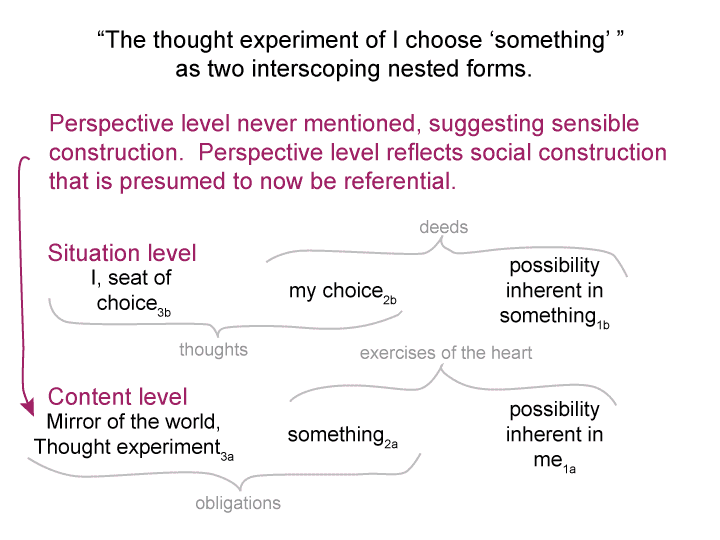Man and Sin by Piet Schoonenberg (1964) 2.3 SG
[The thought experiment where ‘I choose something’ produces three models.
One is an interscope.
The other two are intersections.
Only one version of the intersections is considered. In this model, the interscope’s situation level became the vertical nested form. The interscope’s content level became the horizontal axis.]

